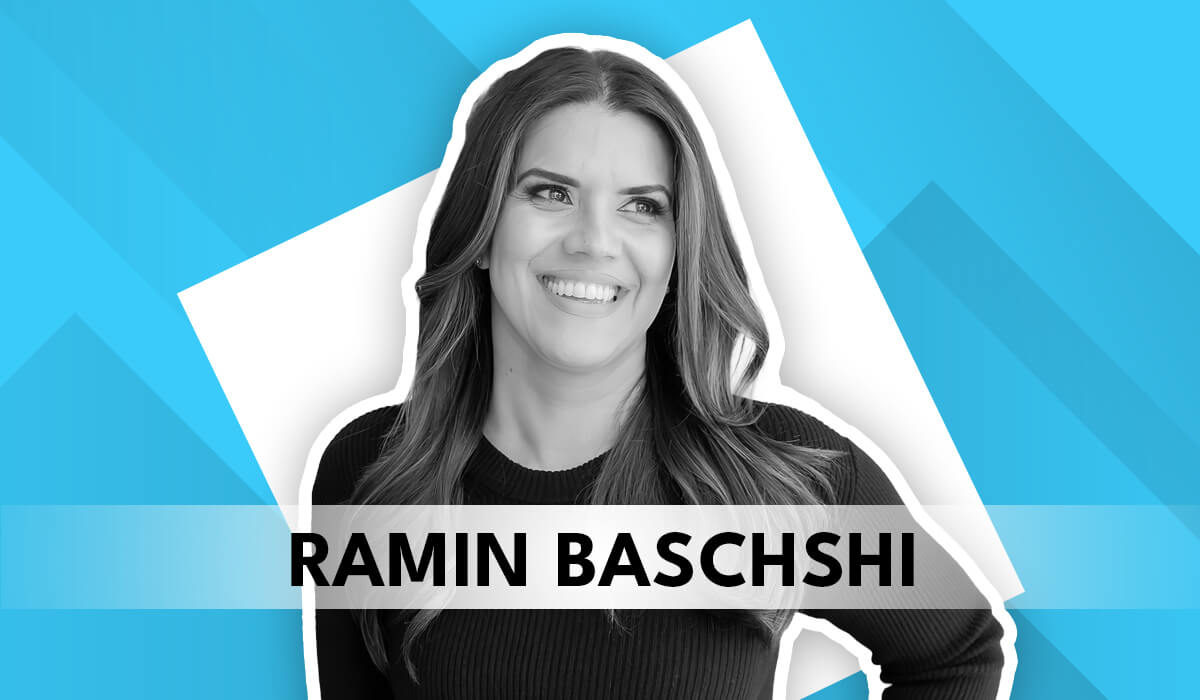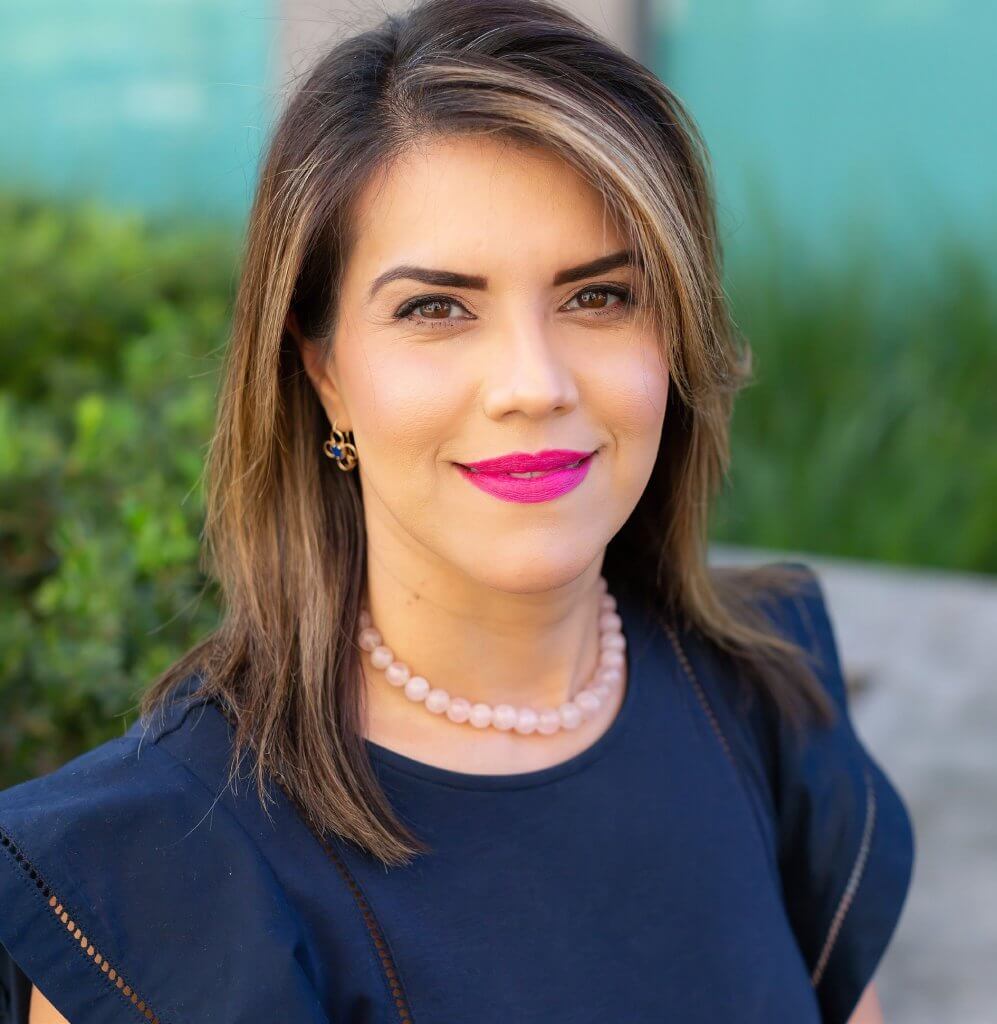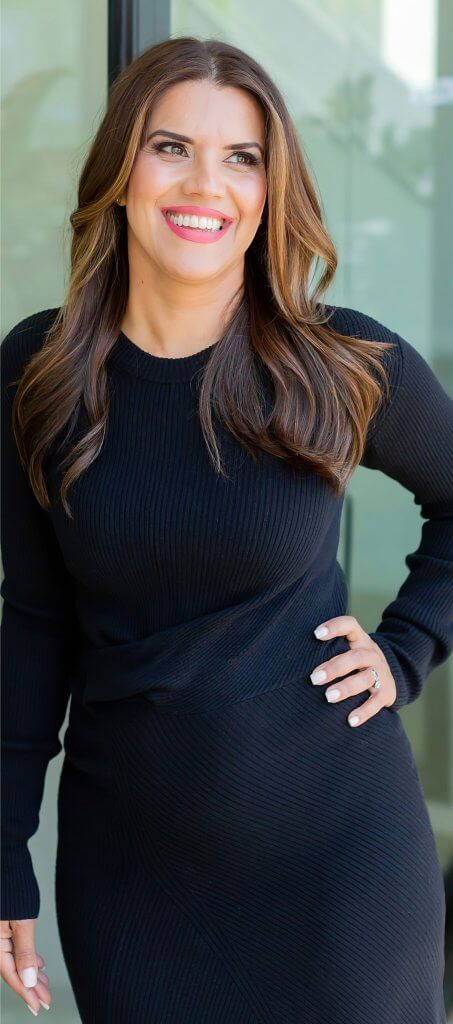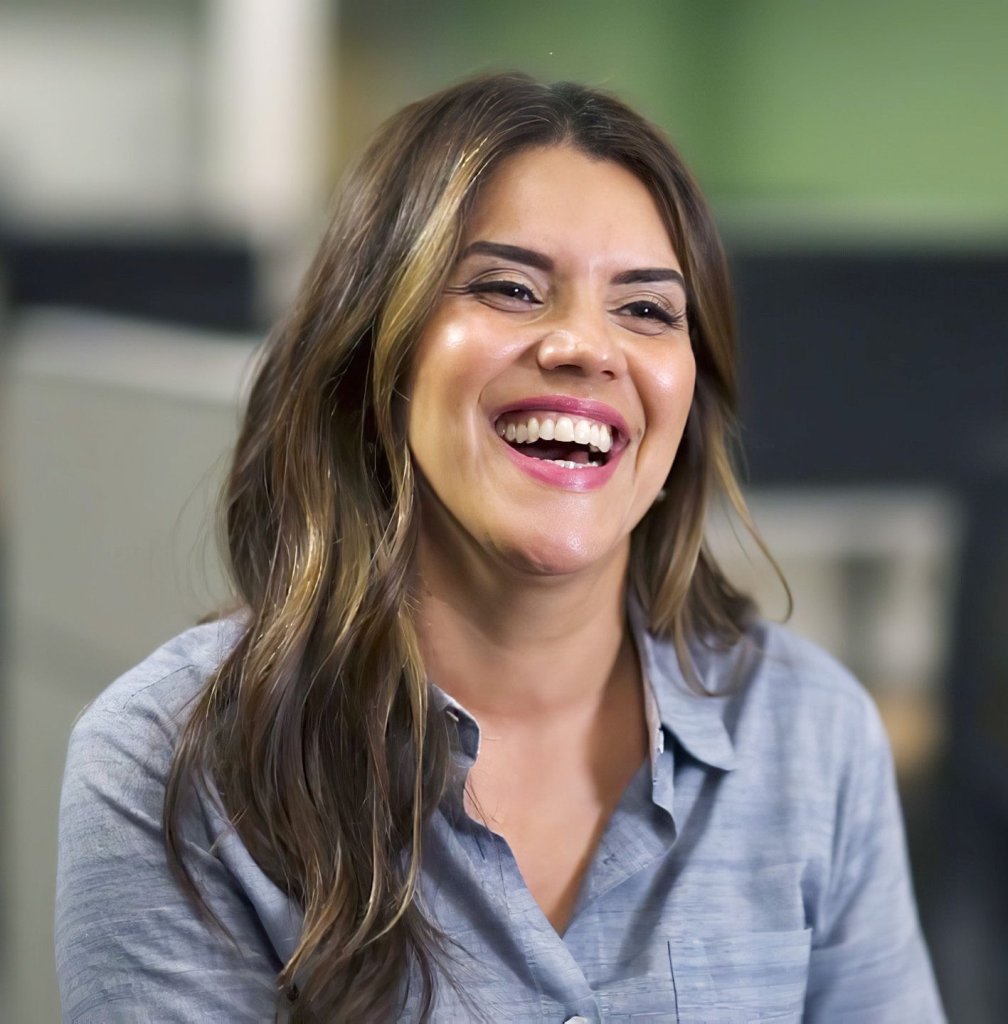
“Since I was a child, I always wanted to be a doctor and give back. I have that instilled in me from growing up in a very giving household— my parents were very altruistic.”
Ramin Baschshi
Since 2018, Dr. Ramin Baschshi has served as the CEO and president of Unlimited Possibilities (UP), an Orange County nonprofit providing disability services to over 5,000 children and families every year.
The organization, formerly known as UCP of Orange County, has served as a beacon of hope for families since 1953 by providing disability services for families at every stage of life, from birth into adulthood. For those with the privilege of working alongside Dr. Baschshi, the words “visionary” or “passionate” will often be the first used to describe her.
Despite the challenges of the past two years, she has shown exemplary leadership in the face of unprecedented circumstances, all while remaining relentless in her vision to push forward and create an equitable world for the underserved within Orange County.
Table of Contents

We Are Thrilled To Have You Join Us Today! Let’s Start Off With A Lit- Tle Introduction. Tell Our Readers A Bit About Your- Self And Your Company.
Dr. Ramin Baschshi: My name is Dr. Ramin Baschshi, and since 2018 I have served as the CEO and president of Unlimited Possibilities (UP), a nonprofit based in Orange County providing disability services to over 5,000 children and families every year.
The organization, formerly known as UCP of Orange County, has served as a beacon of hope for families since 1953 by providing disability services for families at every stage of life, from birth into adulthood. Since I was a child, I always wanted to be a doctor and give back.
I have that instilled in me from growing up in a very giving household—my parents were very altruistic. This kind of work can feel extremely challenging and difficult sometimes, but then I remember why we do what we do. We have to stay focused on the larger picture, which is giving back to the community that needs us the most.
How Has The Pandemic Changed Your Industry And How Have You Adapted?
Dr. Ramin Baschshi: When the pandemic hit, healthcare and the education system became very lucrative. Hospitals, for example, were flushed with money. However, if you’re a medical organization but not part of a hospital, like an urgent care clinic or medical nonprofit like UP, you won’t benefit from this flush of money.
While organizations like UP provide essential services and therapies, we don’t receive any government funding as support like the hospitals did because the government doesn’t recognize us as essential. When you’re not part of the government entity and you’re competing with the conglomerates, the difficulties begin to add up not only with revenue to keep the organization doing but also with the labor crisis.
For example, therapists are passing up positions with nonprofits and going to the school district because these schools with this additional funding are able to pay $55-$85 an hour to do a session with a child versus the average $40 per hour rate that nonprofits pay. Plus, they are only working nine months out of the year based on the school calendar.
No matter how much they love an organization, they’re going to go where there are better pay opportunities. My advice for retaining talent would be to cultivate a strong team and be in dialed with their needs. Make them a priority, because they will then hopefully do the same.
How Many Hours A Day Do You Spend In Front Of A Screen?
Dr. Ramin Baschshi: It’s a tie between my phone and computer. On average per week I spend about 12-13 hours between the two.
The Majority Of Executives Use Stories To Persuade And Communicate In The Workplace. Can You Share With Our Readers Examples Of How You Implement That In Your Business To Communicate Effectively With Your Team?
Dr. Ramin Baschshi: Storytelling plays an important role within my position for both internal and external communication. As a parent with three healthy children, I cannot relate to the challenges our families are going through.
However, sharing patient impact stories with the public and donors is an excellent way to personalize our mission and what we do for people who cannot immediately understand. I’m also an oversharer when it comes to internal communication with my team.
I believe that talking and explaining helps people realize that disabilities can happen to anyone and encourages open conversations so that my team can be the best advocates for UP as they can be. We share stories about our experiences, our families, etc. to motivate us and remind us of what we’re here to do.
Lastly, when speaking externally or internally, I prioritize the organization and our mission. I rarely lead with my position because it’s not about that.

Business Is All About Overcoming Obstacles And Creating Opportunities For Growth. What Do You See As The Real Challenge Right Now?
Dr. Ramin Baschshi: Hiring and retaining talent in this workforce has been extremely difficult. COVID created a new kind of work ethic, and working from home is really difficult for our organization. We have four different business models, all of which are reflective of service and being present in the building or out in the field. We’ve also faced challenges with philanthropy.
Because we are a feefor-service organization, the competition around giving to our cause is very unique. To address these challenges, we’re actively creating ambassadors around our mission, which stems from our board.
Our board members are our ambassadors, who educate others about the importance of what we do and market the organization to their peers.
What Are You Most Interested In Learning About? Crypto, Nfts, Online Marketing, Or Any Other Skill Sets? Please Share Your Motivations.
Dr. Ramin Baschshi: I am most excited about virtual reality therapy. This type of therapy is the way of the future in terms of connecting caregivers, patients, and their families and also extending and expanding care.
It is one additional element for the future of pediatric treatment that’s in the early stages of happening and is an essential part of treatment.
A Record 4.4 Million Americans Left Their Jobs In September 2021, Accelerating A Trend That Has Become Known As The Great Resignation. 47% Of People Planned To Leave Their Job During 2022. Most Are Leaving Because Of Their Boss Or Their Company Culture. 82% Of People Feel Unheard, Undervalued And Misunderstood In The Workplace. Do You Think Leaders See The Data And Think “that’s Not Me – I’m Not That Boss They Don’t Want To Work For? What Changes Do You Think Need To Happen?
Dr. Ramin Baschshi: Reiterating what was said in an earlier question, business leaders need to prioritize the well-being of their employees. All companies are run by people and if they are not taken care of, they will leave. Changes should be specific to the organization.
I encourage leaders to actively listen to their workforce and see what is really needed to set them up for success. If these changes in policy can be made without negatively affecting the business, then make them. Show your team that they are valued and that you are listening.
On A Lighter Note, If You Had The Ability To Pick Any Business Super- Power, What Would It Be And How Would You Put It Into Practice?
Dr. Ramin Baschshi: This is very practical, but branding, marketing and PR would be my superpower.
If I was a master at those things, people would recognize UP and partake in our organization without question.

What Does “success” In The Year To Come Mean To You? It Could Be On A Per- Sonal Or Business Level, Please Share Your Vision.
Dr. Ramin Baschshi: Success means going to sleep at night knowing that I helped people and then waking up in the morning knowing I have to do it all again.
Although net income, fundraising, and innovation are all great measurements of success, nothing compares to the feeling of helping people, even if you accomplished the smallest thing. Success to me is knowing that I’ve given something to someone that made a difference, whether it’s for the organization or my own children.
Jerome Knyszewski, VIP Contributor to WellnessVoice and the host of this interview would like to thank Ramin Baschshi for taking the time to do this interview and share her knowledge and experience with our readers.
Did you enjoy this article? Check out similar stories:
Iona Holloway of Soul Breathwork Shares Strategies for Workplace Well-being
Insights from Jodi Brandstetter of Influence Network Media
Ariadne Wolf of Mermaid Consulting Shares Strategies for Empowering Employees
A Conversation with Foram Sheth of Ama La Vida
Alla Weinberg of Spoke & Wheel Dives into Workplace Mental Health Support
Disclaimer: The WellnessVoice Community welcomes voices from many spheres on our open platform. We publish pieces as written by outside contributors with a wide range of opinions, which don’t necessarily reflect our own. Community stories are not commissioned by our editorial team and must meet our guidelines prior to being published.
